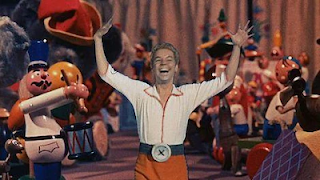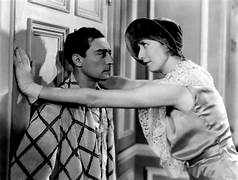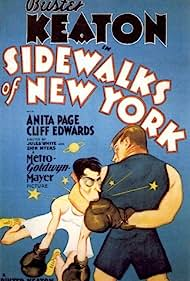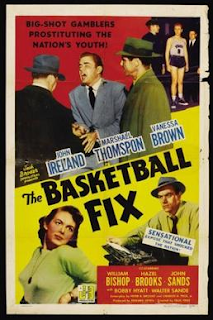(1958)
Directed by George Pal
Written by Ladislas Fodor, based on the story by the Brothers Grimm*
Starring Russ Tamblyn, June Thorburn, Peter Sellers, Alan Young, Terry-Thomas, Bernard Miles, Jessie Mathews.
IMDB Entry
Twitter and Facebook occasionally bring up the question, "What was the first movie you saw in a theater?" I would answer Sleeping Beauty, but recently I realized that was wrong. Checking the release dates, I realized I had seen tom thumb the year before.
Jonathan, a poor woodsman (Bernard Miles), is asked not to chop down a tree by the Forest Queen (June Thorburn) and is granted three wishes. That backfires, but later there's a knock on their door and Jonathan and his wife Anne (Jessie Matthews), who always wanted a son, find there's one adadditional wish granted. Tom (Russ Tamblyn) is tiny but still a full-grown man (with a child's look at the world). Meanwhile, Woody (Alan Young) is in love with the Forest Queen, but she doesn't think him a suitable match. When tom goes to the fair, two villains (Terry-Thomas and Peter Sellers) trick him into a scheme to rob the town's treasury. He naively obliges, and his parents are accused of the crime. Tom has to work to capture the villains and prove their innocence.
George Pal directed. He was a master of stop-motion animation, and the movie is filled with sequences highlighting this, most notably when tom's toys join in with musical numbers. The effects are quite good for the time and the illusion of tom's size is kept up throughout.
Russ Tamblyn is an acrobatic dancer and his performance as tom is very childlike and naive, which causes him all sorts of trouble in stereotyping, but he did appear in several film classics. Terry-Thomas and Peter Sellers ham it up royally as the villains.
Nowadays, Alan Young is known for Mr. Ed,** but he was a very well-regarded radio comedian who never became a big movie star. He also did a lot of voice work after Mr. Ed, including as Scrooge McDuck and as various roles in The Smurfs.
___________________________________________________________________
*The Grimms, by the way, did not actually write the fairy tales attributed to them. They collected them from existing tales. Any objections to their content have nothing to do with them. Second, Jacob Grimm is well known in language studies as the developer of Grimm's Law, which explained how words changed their sounds over time. For example, the "p" in the Proto-Indo European "pods" changes to the "f" in "foot."
**Mr. Ed never had a great timeslot. It originally aired in syndication, and then at 6:30 on Sundays, which was not considered prime time. It did go to a later spot for one season, but returned to the earlier slot, a time where TV watching is low.






